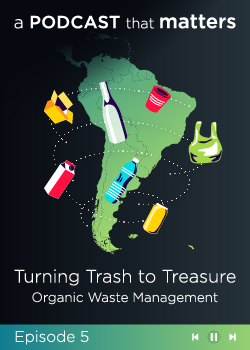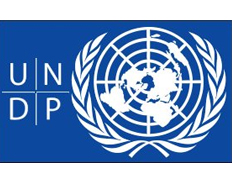
Improve fermentation processes (including downstream purification) to final bio-based products
Details
Description
Call updates
Apr 26, 2023 12:02:54 PM
The submission session is now available for: HORIZON-JU-CBE-2023-IA-03(HORIZON-JU-IA)
Improve fermentation processes (including downstream purification) to final bio-based products
TOPIC ID: HORIZON-JU-CBE-2023-IA-03
Programme: Horizon Europe Framework Programme (HORIZON)
Call: Circular Bio-based Europe Joint Undertaking (HORIZON-JU-CBE-2023)
Type of action: HORIZON-JU-IA HORIZON JU Innovation Actions
Type of MGA: HORIZON Action Grant Budget-Based [HORIZON-AG]
Deadline model: single-stage
Planned opening date: 26 April 2023
Deadline date: 20 September 2023 17:00:00 Brussels time
ExpectedOutcome:
In line with the objectives of the Circular economy and the Zero pollution action plan, successful proposals will demonstrate processing technologies to facilitate the large-scale deployment of industrial bio-based systems. These systems will contribute to the EU Bioeconomy Strategy implementation, demonstrating improved environmental performances, maximum resource- and energy-efficiency, and optimal cascading use of bio-based feedstock, aiming for ‘zero waste’ and ‘zero-pollution’ operations.
Project results should contribute to the following expected outcomes:
Availability of new industrial biotechnology-based production routes to bio-based products from sustainably sourced biomass;
Improved productivity, yield, titre and selectivity of scaled up fermentation processes to bio-based products;
Increased competitiveness of European biorefineries;
Significant improvement of environmental performance across the value chain against specified fossil and/or bio-based benchmarks;
Improved circularity and resource efficiency via practical application of the circular (bio)economy concept;
Social acceptance of circular bio-based solutions and products;
Availability of broader range of bio-based products meeting market requirements;
Facilitation of market uptake of scalable bio-based solutions
Scope:
Fermentation of bio-based feedstock is powerful but often still cost-intensive and resource-intensive process. This is mainly due to costly enzymes, low process yields, high by-product toxicity, poor microorganism growth, high nutrient requirements but also inefficiencies in downstream purification. Moreover, most used biocatalysts are optimised for converting conventional sugars and are less effective (or unable) to deal with second generation and non-food quality sugars, thus preventing the exploitation of additional sources of biomass feedstock. Solving all these issues may require the development of new metabolic pathways and the scale-up of related processes to industrially relevant scale. In addition, the presence of by-products often requires complex and expensive downstream purification processes, especially when the desired end products are non-volatile. This aspect adds to the complexity and cost of the process and needs to be optimised as well.
Proposals under this topic should:
Specify and justify the choice of one or more sustainable feedstock types to be valorised via optimised, scaled up fermentation processes, and the targeted bio-based products. With regards to the targeted bio-based products, non-volatile as well as thermally and/or chemically unstable compounds, presenting higher downstream purification constraints, should be in the scope.
Demonstrate improved process design strategies to solve previously identified bottlenecks in industrially relevant fermentation processes considering both upstream and downstream steps. The proposed strategies can consider biocatalyst(s) optimisation, reactor design, process design innovation but also process agents (e.g. solvents) innovation. Address fermentation processes productivity (yield, titre, selectivity) as well as cost-, resource- and energy-efficiency in view of further scale-up to commercial level;
Ensure the improvement of the energy and resource efficiency of downstream purification strategies for obtaining the end products in scope, thus also enabling cost-effective production, in particular when dealing with non-volatile or chemically/thermally unstable products.
Target end products with tangible market applications and ensure that the products meet market and regulatory requirements (e.g. in terms of consumers safety and Health, Safety and Environment (HS&E))
Include a task to integrate assessment based on the safe-and-sustainable-by-design (SSbD) framework, developed by the European Commission, for assessing the safety and sustainability of chemicals and materials[1]. Under this context, projects are expected to contribute with and develop recommendations that can advance further the application of the SSbD framework[2].
Analyse and prove techno-economic feasibility as well as commercial viability of further scaling up the process to commercial scale.
Proposals must implement the multi-actor approach and demonstrate the involvement of all concerned key actors, such as the processing industry, end users and brand owners.
Proposals should also describe their contribution to the Specific CBE JU requirements, presented in section 2.2.3.1, and the cross-cutting elements, highlighted in section 2.2.3.2 of the CBE JU Annual Work Programme 2023[3].
Where relevant, proposals should seek links with and capitalise on the results of past and ongoing EU funded projects[4].
[1]See documents defining the framework and criteria on: https://ec.europa.eu/info/research-and-innovation/research-area/industrial-research-and-innovation/key-enabling-technologies/advanced-materials-and-chemicals_en.
[2]More specifically, provide thresholds that can support the criteria definition and improvements for the assessment SSbD methodologies, including any specificities related with bio-based surfactants. Recommendations should also include identification of data gaps, especially safety, environmental, but also socio-economic factors, as well as priorities for data collection.
[3]CBE JU Annual Work Programme 2023 (https://www.cbe.europa.eu/reference-documents)
[4]For example iFermenter, CARBOSURF, US4GREENCHEM (RIA under BBI), DEMETER, REDWine, INGREEN (IA under BBI). See also HORIZON-JU-CBE-2023-IA-05 “Development of scalable safe bio-based surfactants, with an improved sustainability profile” and HORIZON-JU-CBE-2023-IA-06 “Selective, sustainable production routes towards bio-based alternatives to fossil-based chemical building blocks”. Moreover, projects from Horizon Europe Cluster 4 and Processes4Planet should be considered.




